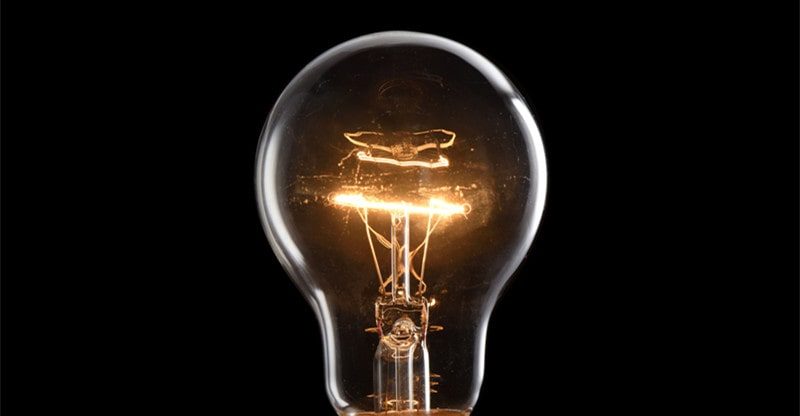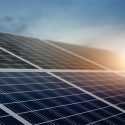How Does A Generator Create Electricity? Find Out Here
A generator is a machine that converts one type of energy into another. It typically converts mechanical energy into electrical energy. A generator is an important power source during disasters such as storms or blackouts, but it can also provide electricity to homes and businesses on a regular basis.
This article will explain how generators work and what they do exactly. Understanding this topic may help you decide if a generator is an appropriate choice for your home or business needs.
What Types Of Generators Are There?
Before we jump into the mechanics, it is important to briefly discuss the types of generators that are available. There are three main types of generators:
- Portable: These generators are small and portable, making them great for camping or tailgate parties. They typically produce less power than larger models.
- Inverter: These generators are built to operate quietly. Instead of producing the rhythmic sound of a conventional generator, inverter generators more closely mimic the sounds you’d hear in your house. As seen at Generatorsage.com, this type of generator is fuel and cost-efficient. These generators typically produce a lot of power.
- Standby: These generators are constantly running, which makes them great for locations that have unreliable power or frequent blackouts. They have large fuel tanks and can produce a lot of power. However, they are very loud and expensive to run.
Now that you know some basic types, we can move on to more interesting things.
How Does A Generator Create Electricity?
A generator works by converting mechanical energy into electrical energy. The electricity can then be used for powering appliances, electronics, and other pieces of equipment that need power. There are several main components in a generator:
- Engine: In a generator, the engine converts fuel into mechanical energy.
- Alternator: A DC (direct current) alternator is an electrical generator that produces AC (alternating current), which can then be used in appliances or devices.
- Fuel Tank: This holds the fuel that is needed to run the engine of the generator.
- Oil Reservoir: This holds the oil that is needed to keep the generator running smoothly.
- Voltage Regulator: This ensures that the voltage is steady, which increases the efficiency of everything that has an electric current.
- Cooling and Exhaust Systems: These help the generator from overheating.
- Battery Charger: This component charges the battery of your generator.
- Control Panel: This panel controls the operations of the generator.
So, now you know the main components of a generator. Now for the fun part: how it all comes together to create electricity!
To start a generator, a spark is needed to ignite the fuel. Afterward, gasoline vapors begin going through the carburetor and into a small engine. The engine then starts producing mechanical energy, which is transferred to the alternator and converted into electrical energy: AC (alternating current). AC electricity is then sent to a voltage regulator and finally onto the battery charger.
The battery charger sends out direct current electricity to the batteries and other devices that need power. This means that the electricity is no longer alternating current, but direct current. The battery charger ensures that the voltage is steady and doesn’t fluctuate too much.
After everything has an electric charge, it’s time to lose the engine noise. It’s time for all of that power to be transformed into something that people can actually use- AC (alternating current) electricity.
Here’s how it works: the voltage regulator sends alternating current to the generator, which passes through several different coils of wire at varying speeds. This creates an electromagnetic field that induces direct current electricity in another set of coils. The direct current is then sent out to devices or appliances that need power.
What Are Generators Used For?
There are several different scenarios where generators are useful. Here are some of them:
- Camping And Tailgate Parties: Who wants to be without power while camping? Freezers, TVs, fans, lights, and other devices can all be plugged into your generator. With the right setup, you could even use an inverter generator to power your home appliances.
- During Storms And Blackouts: The battery charger is important here. If the electricity goes out, your generator will be ready to keep you powered up and running if needed.
- Emergency Power: Generators are great for powering emergency equipment that needs electricity, such as medical equipment. Having a generator is a good idea if you have equipment that is life-saving or if someone in your household needs electricity to run specific devices.
Essential Information For A Generator
When it comes to generators there are a few things to consider when purchasing one. First of all, you need to consider the fuel capacity. You need to know how long your generator can run before needing to refuel. You will also need to consider how much space you have for storing your generator.
Finally, if you are going to be using it outside or in a garage, you will need to know the decibel level of the generator. Decibels are used to measure noise levels- which can get very loud! Generators usually produce noise between 70 and 100 decibels when heard from 23 feet away.
This means that if you are going to be using your generator for outside activities, you will need a generator that produces noise below 80 decibels. Remember- when buying a generator, purchase one that is appropriate for whatever it is being used for!
Generators are used for many different purposes. For example, if you’re looking to power your home appliances or medical equipment during a blackout, you need to consider how much space is available and the decibel level of the generator. It’s important that generators be appropriate for what they’re being used for in order to run effectively.
Do your research and you will find the right generator for your needs. Keep in mind, however, that you need to practice and test your generator before an actual emergency. For example, you should work out all of the kinks and learn their limitations so that you can be confident it will get the job done when needed!



